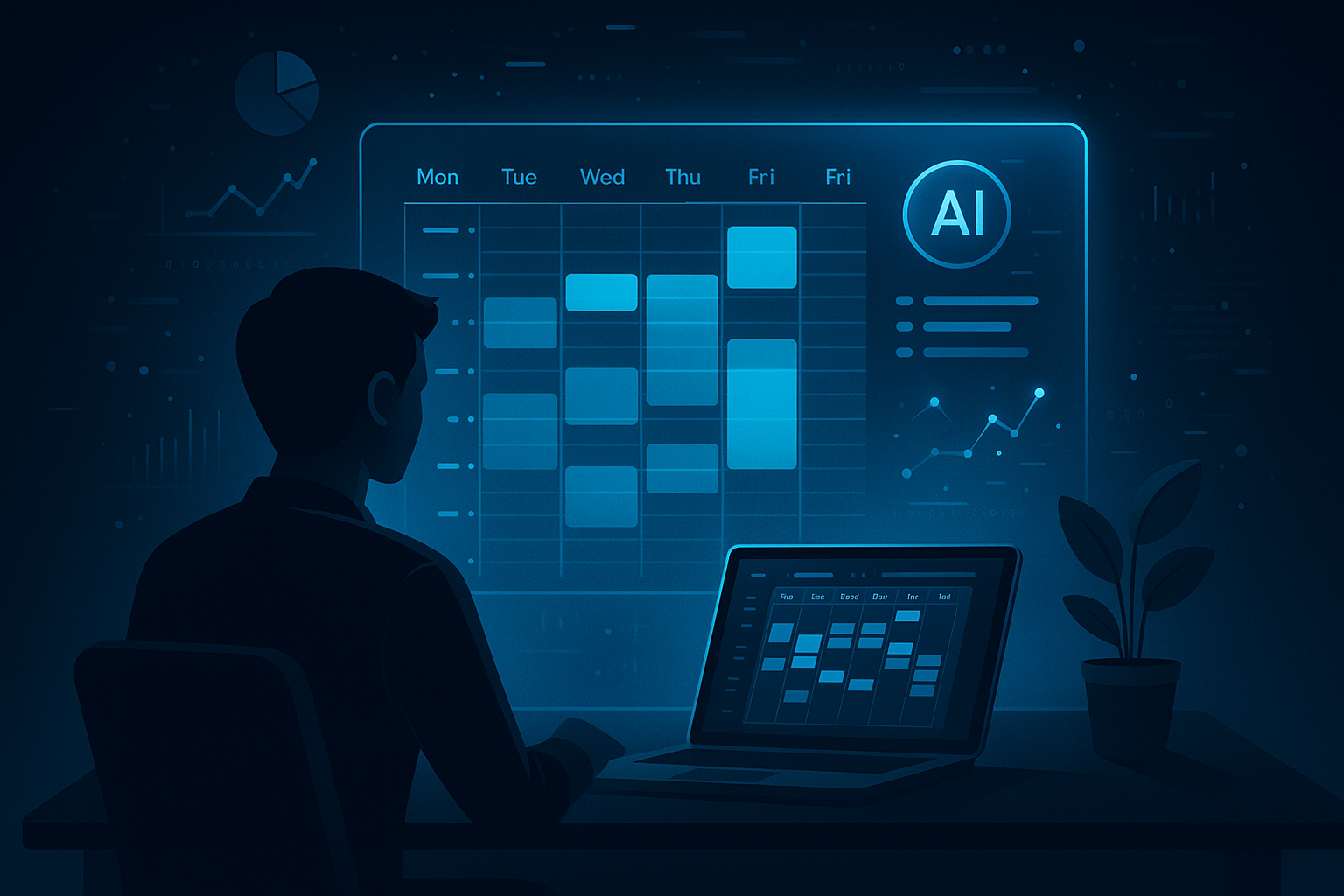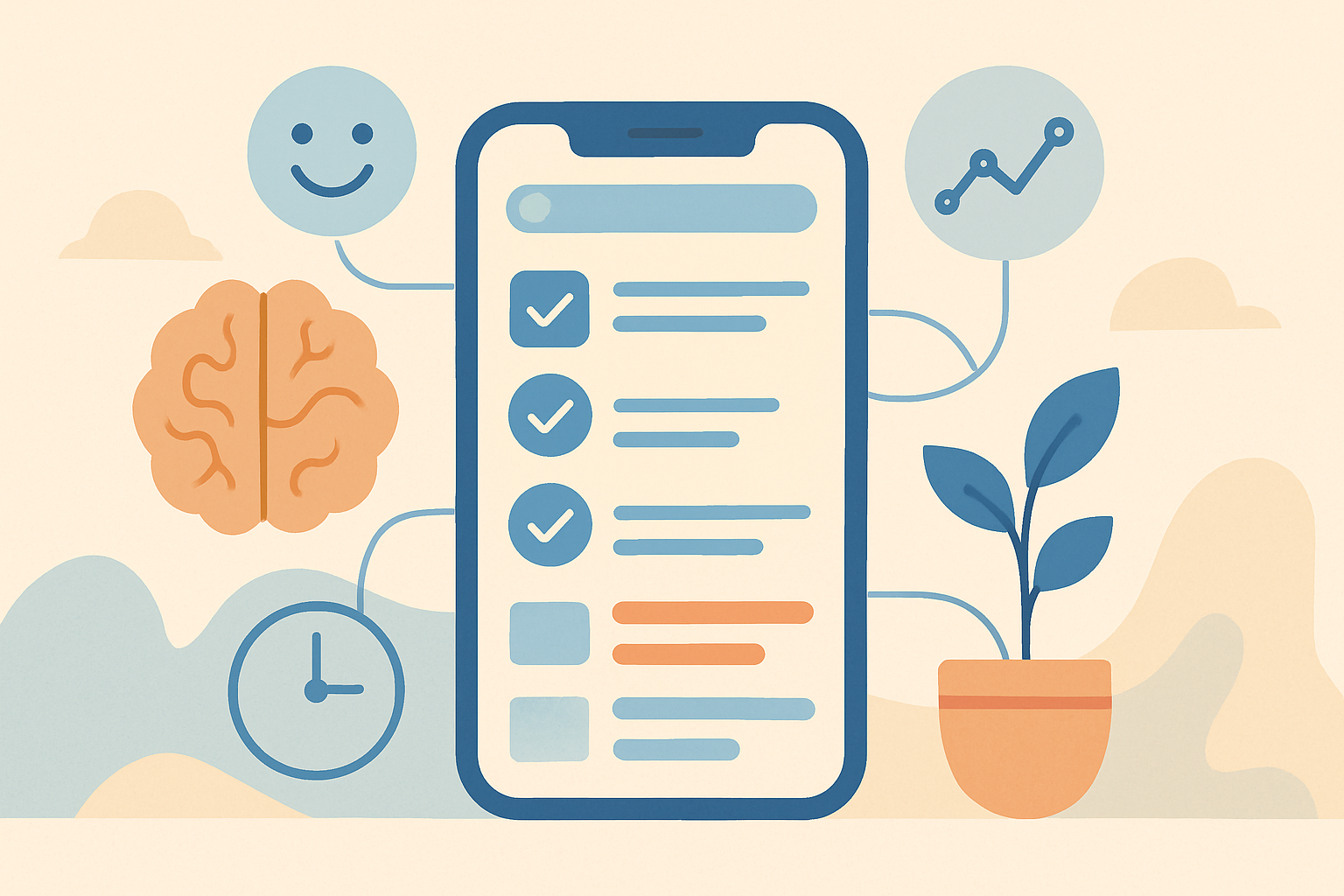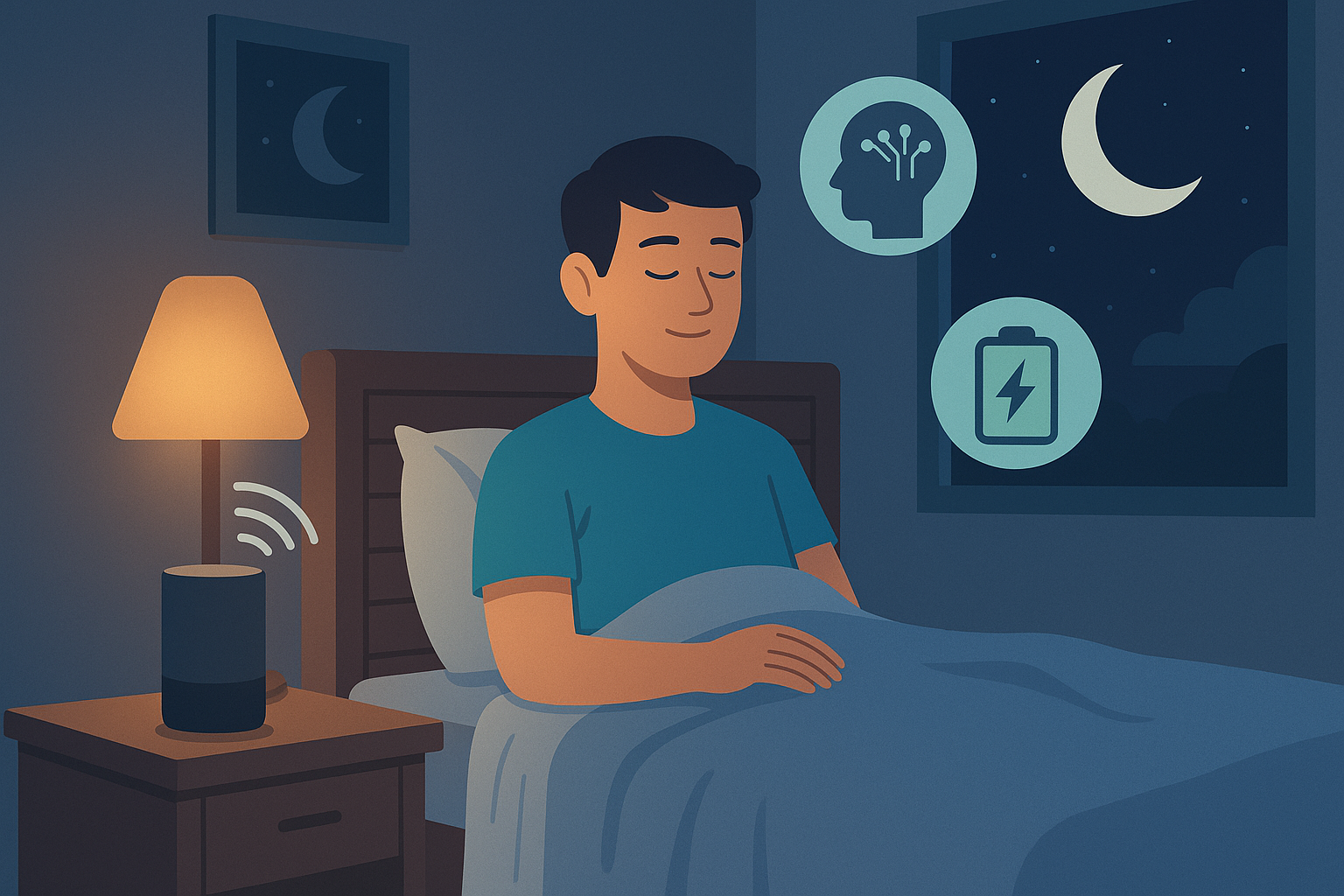Planning used to be a time-consuming ritual — sticky notes, spreadsheets, endless to-do lists. But today, AI has rewritten what it means to organize your life.
In 2025, the most productive people in the world aren’t those who spend hours planning — they’re the ones who let artificial intelligence do it for them.
Thanks to AI scheduling systems, you can design an entire week of focus, rest, and balance in less than 10 minutes.
Your new assistant doesn’t just manage your calendar. It understands it.

The Shift from Planning to Prediction
Traditional planning starts with intention. AI planning starts with information.
Instead of manually deciding what fits where, modern AI tools analyze your work patterns, priorities, and energy cycles to create an optimized plan that feels effortless.
The result is a dynamic week that evolves as you do — automatically.
Example:
Reclaim AI studies your meetings, preferred deep work hours, and fatigue patterns. It then reshapes your schedule to ensure that creative tasks happen during high focus hours and admin work lands when your energy dips.
AI turns your week into a living, breathing ecosystem of time.
Why AI Is the Future of Time Management
Human planning is emotional. We overcommit, underestimate, and react to urgency instead of strategy. AI systems eliminate this bias by focusing on objective performance data — not willpower.
The biggest shift isn’t automation — it’s awareness. AI learns how you actually work, not how you think you do.
Example:
You may believe you’re most productive in the afternoon, but your AI assistant — analyzing emails, keystrokes, and completion times — sees your best performance between 8 and 11 AM.
Next Monday, it blocks that time for deep work automatically.
This is what true productivity looks like: precision powered by intelligence.
How to Plan Your Week in 10 Minutes with AI
Planning your week with AI takes less time than brewing coffee — because the system does the heavy lifting.
Here’s what happens during that 10-minute window:
- Step 1: AI pulls your existing calendar, tasks, and priorities.
- Step 2: It calculates energy patterns, meeting density, and focus blocks.
- Step 3: It suggests an optimized schedule aligned with your goals and habits.
- Step 4: You confirm or adjust — in seconds.
In one short session, your week transforms from chaos to clarity.
Example:
Motion AI detects that Tuesday mornings are free and assigns them as a recurring strategy block. It schedules workouts between 6 and 7 PM based on your past consistency. Meanwhile, Notion AI builds a task summary and sends you a daily focus list each morning.
This isn’t digital planning — it’s AI orchestration.
Table: How AI Planning Compares to Traditional Planning
| Category | Manual Planning | AI-Powered Planning |
|---|---|---|
| Time Spent | 1–2 hours/week | < 10 minutes/week |
| Accuracy | Based on intuition | Based on data and habits |
| Adaptability | Fixed | Dynamic, adjusts daily |
| Stress Level | High | Low — cognitive relief |
| Focus Retention | Unstable | Predictive and personalized |
AI doesn’t just plan faster — it plans better than humans can.
The Tools That Make It Possible
The beauty of this method is that it doesn’t require a complex setup. Modern AI tools handle integration automatically:
| AI Tool | Function | Ideal For |
|---|---|---|
| Reclaim AI | Smart scheduling and focus blocking | Professionals & teams |
| Motion | Real-time daily automation | Entrepreneurs |
| Notion AI | Weekly summaries and task context | Creators & strategists |
| Akiflow | Calendar + task hybrid | Solo founders |
| ChatGPT | Reflective planning and goal review | General users |
Together, these systems form a loop of continuous optimization — each week, the AI learns from your behavior and refines its predictions.
Example: My 10-Minute AI Planning Session
Every Sunday, I open Notion and ChatGPT. I type a single command:
“Review last week and plan the next one using my task history.”
In seconds, ChatGPT highlights which goals were achieved, which were delayed, and why. It identifies focus leaks — like overcommitting to meetings or ignoring rest.
Then, Reclaim AI syncs that data and auto-generates a new week: high-focus blocks for deep work, low-focus periods for admin, and scheduled breaks that prevent burnout.
The process takes less than ten minutes — but the effects last all week.
AI doesn’t just make planning easier. It makes it smarter every time you do it.
The Cognitive Benefit of AI-Driven Planning
When you hand off planning to AI, you’re freeing your brain from low-value decisions.
Neuroscientists call this “cognitive offloading” — the act of delegating mental load to external systems so your mind can focus on creation and judgment.
By outsourcing logistics to AI, you recover mental bandwidth for deep work, learning, and strategy.
You’re not giving control to the machine — you’re giving clarity to yourself.
Beyond Scheduling: AI That Understands You
The next generation of AI planning systems will go beyond time management. They’ll measure emotional and cognitive readiness.
Imagine your AI assistant analyzing your tone in Slack or email, recognizing stress, and suggesting a lighter schedule or a midday walk.
It won’t just plan your time — it’ll protect your energy.
By 2026, most major productivity platforms will include emotion-driven scheduling models powered by machine learning. The question won’t be, “What should I do next?” but “What’s best for my mind right now?”
The Future of Human-AI Planning
As AI becomes the foundation of modern organization, weekly planning will feel less like a task and more like a dialogue.
You’ll simply say:
“AI, optimize my week for focus and energy.”
And in seconds, your system will analyze goals, meetings, and cognitive data — creating a perfectly aligned roadmap.
This is not automation.
It’s co-intelligence: humans providing direction, AI providing precision.
Conclusion
Planning your week with AI is not about saving time — it’s about reclaiming your attention.
When machines handle the mechanics, you handle the meaning.
Ten minutes of AI-powered structure can unlock 40 hours of clarity, focus, and flow.
The future of productivity isn’t busier. It’s brighter.
And it begins with ten minutes of intelligent planning.
Further Reading & Related Insights
Internal link:
- The AI Morning Routine for Energy & Focus — Learn how AI can optimize your mornings for higher focus and clarity.
External links:
Blog
This section provides an overview of the blog, showcasing a variety of articles, insights, and resources to inform and inspire readers.
-

AI Habit Tracking and the New Rhythm of Modern Self-Improvement
AI Habit Tracking. Progress used to depend on discipline. Now, it depends on data.…
-

AI Decision Making and the New Discipline of Intentional Living
AI Decision Making. Every “yes” has a cost. Every time you agree to something…
-

The Perfect AI Night Routine to Sleep Better and Think Smarter
AI Night Routine. Your morning doesn’t begin when you wake up — it begins…
